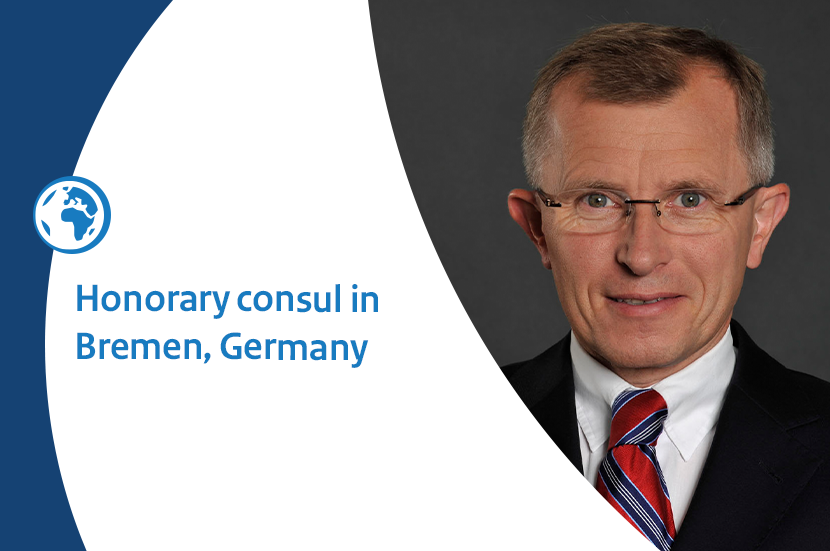Honorary consul in Bremen, Germany: Hylke Boerstra
Hylke Boerstra moved to Germany in 1959, at the age of 4. For over 20 years now, he has been the honorary consul in Bremen. Hylke nurtures ties between the embassy in Berlin, the consulate-general in Düsseldorf, the Netherlands Business Support Office in Hamburg and the authorities of Dutch provinces, in particular Groningen. He opens doors for Dutch entrepreneurs in the region and is ready to help Dutch people in needed. This is his story.
About our honorary consuls
The Netherlands has almost 300 honorary consuls all over the world. They act in the interests of Dutch nationals abroad on behalf of the Dutch government, without receiving a salary in return. Together with our embassies and other missions, they are the Netherlands’ eyes and ears abroad.
Starting out as an honorary consul
Hylke worked at a bank and later in the shipping industry. When he was asked by the previous honorary consul – who was retiring – to be his successor, he was honoured to take on this special responsibility. The bank agreed to let Hylke conduct his tasks as honorary consul from their offices. The building was centrally located in Bremen and easily accessible by public transport. His office was next to reception. A Dutch coat of arms was hung on the wall and his assistant at the bank even took on additional tasks to support the new honorary consul.
‘Until 2005 I did my consular work from the bank,’ Hylke says. ‘When I moved to a new job at a shipping company, the consulate came with me.’
Changing times, changing tasks
‘Over the years, the tasks of honorary consuls have changed a lot,’ Hylke explains. ‘When I started there was very little information available on the internet. And it wasn’t possible to arrange matters with the Dutch government online. Dutch nationals came to me for consular assistance: to replace a stolen passport, get social or financial assistance and ask questions about Dutch rules and legislation. I would put them in touch with the right people.’
‘Now everyone can find that kind of information online. But putting Dutch nationals in contact with the right organisations and people is still at the core of my work as honorary consul.’
Extensive network
‘I know the region like the back of my hand. I went to school here and enjoy using my network to benefit the Netherlands. Because I know the people here, it’s easy for me to approach them and put Dutch people or businesses in touch with them. My official role as honorary consul means I can open more doors for others. And I know what scope there is for partnerships, opportunities and development. In Bremen, for example, there are lots of opportunities in aerospace, hydrogen and wind energy. I am an extra pair of eyes and ears for the Netherlands in this region.’
Royal visitors
‘One of the highlights of my time as honorary consul was when I was involving in putting together the programme for King Willem-Alexander and Queen Máxima’s visit to Bremen. Their visit helped bring businesses closer together, and fostered greater cooperation between the Netherlands and Germany.’
Continued commitment to the Netherlands and Dutch nationals
‘I retired from my regular job in 2021. I’m still a member of the shipping company’s supervisory board, but this step has allowed me to carry out my role as honorary consul even more intensively. Emails continue to pour into my inbox with questions about Dutch nationality or the coronavirus measures and from Dutch companies looking for business partners. I take the initiative to organise events and gatherings in order to open doors for entrepreneurs. That’s something I enjoy and would like to carry on doing for a long time to come.’
